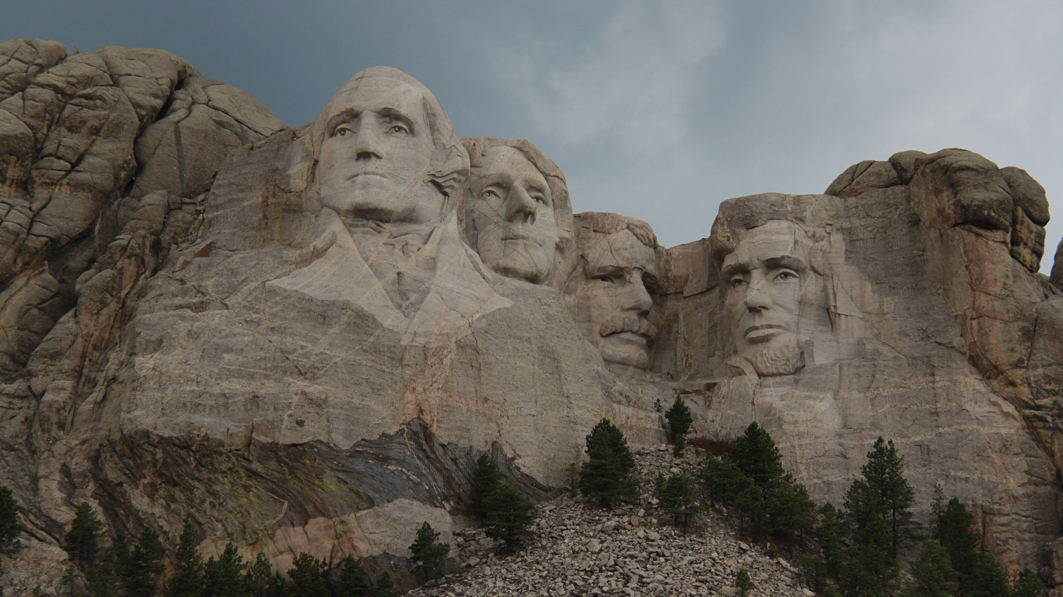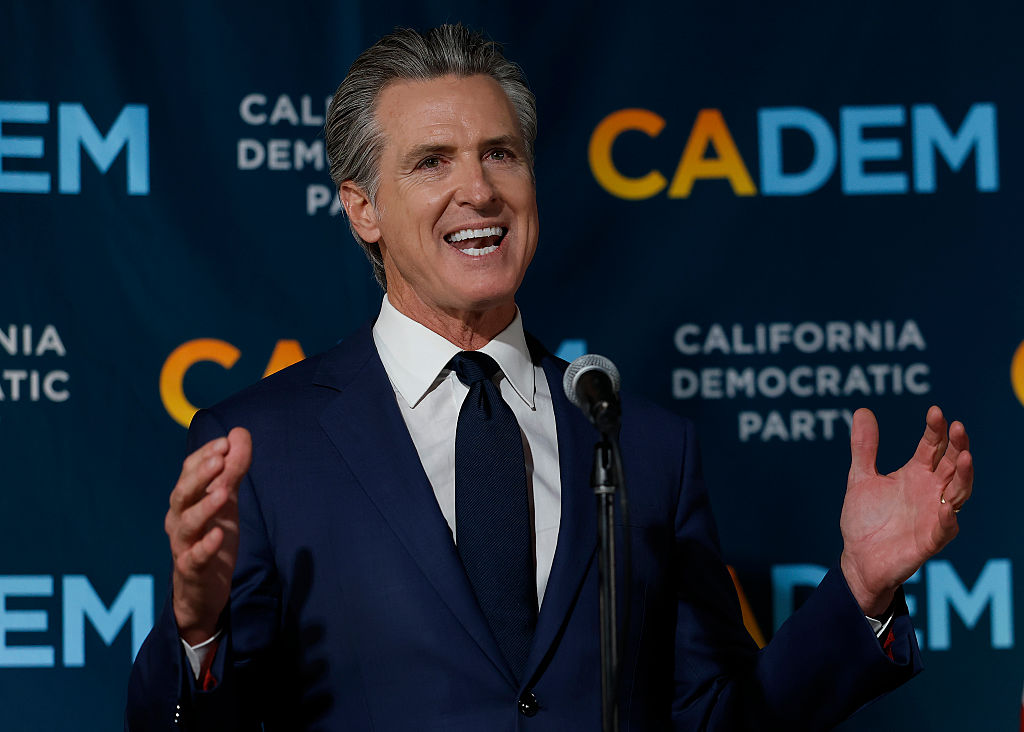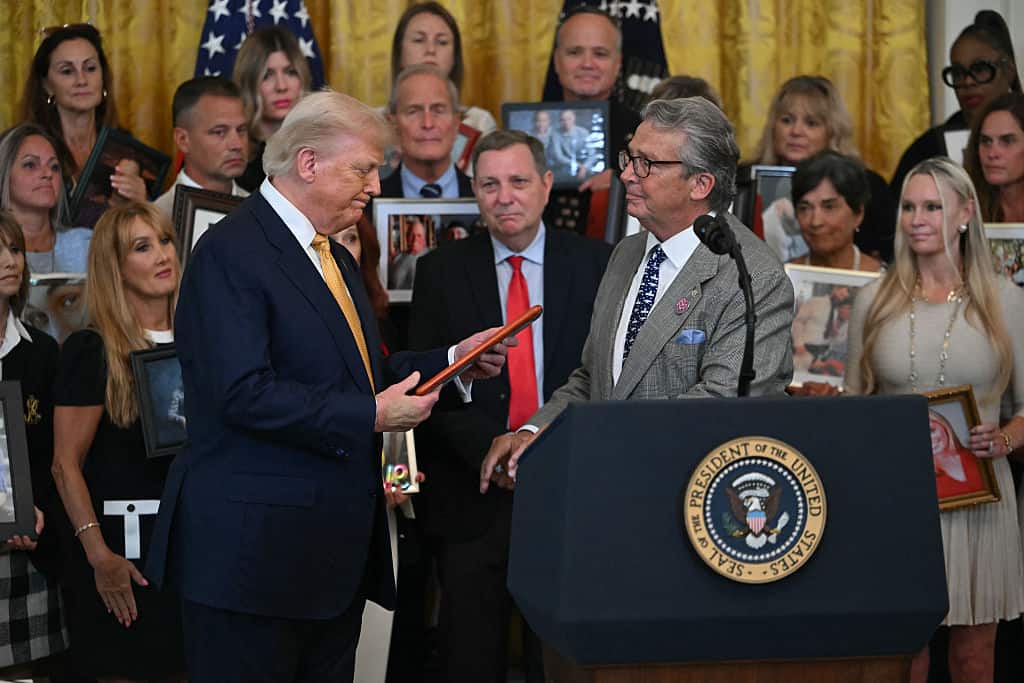FAITH OF OUR FATHERS

Most American presidents have claimed the mantle of Christianity, and with good reason: Most of our commanders in chief were in fact serious men of faith — though coming from a wide range of denominational backgrounds and perspectives on the Triune God.
George Washington, our first president, was a cradle Anglican. He served on the vestries of his local parishes his entire life, even overseeing the construction project of one historically important northern Virginia church. After taking the oath of office, the first in our nation’s history, he added the words “so help me God” and kissed the Bible before a sizeable New York City crowd gathered near present-day Wall Street.
Washington’s simple and elegant phrase “so help me God” has become an American tradition.
Although rightly prudent about the expression of his faith – not wanting to be confused as a pastor in chief – no one who knew Washington well in war or in peace doubted for a moment that Providence was central to his remarkable legacy. Washington himself was highly biblically literate and made numerous references to verses and passages that guided his life, often evoking that ancient, peaceful image of a man living agreeably under ‘his own vine and fig tree’ — a tender phrase from Scripture which recurs often in his voluminous letters and notes.
Andrew Jackson, the hero of the Battle of New Orleans, who was widely viewed as one of the most cantankerous men to be elected to the White House, and who won two of the most contentious presidential elections in our history, made his belief in Jesus Christ well known to those who were around him. In fact, like Washington, Jackson believed firmly that God directed the affairs of a nation that honored Him, and Jackson was not shy about mentioning the sovereignty of the Almighty in the daily events of the United States.
There is a never-ending debate about whether Abraham Lincoln was a Christian; as a young man, at notable turns in his hardscrabble life in Kentucky and Indiana, he was quietly skeptical. Yet one of the greatest Lincoln scholars, Allen Guelzo, has made a powerful case that, though Lincoln may not have been an orthodox Christian per se, what is not in dispute is that he firmly believed – in his own powerful phrasing – that “the will of God prevails.”
Guelzo says that near the end of his too-short life, Lincoln surely had a firmer understanding of the natural law – the norms of life as Providence directs and informs them – and those closest to Lincoln knew that the president’s views of the Civil War, and of life in mid-19th century America, were God-informed and directed. Lincoln’s inaugural addresses contain the cadences and Bible references of the King James Version of the Bible, and are unmistakably rich in Christian imagery and phrasemaking. So was the Gettysburg Address which reads like a sermon.
The scholar Daniel Dreisbach writes of Lincoln’s timeless speech that “it contains no direct biblical quotations; however, there are few clauses that do not echo the cadences, phrases, and themes of the King James Bible.” Justso.
In another famous speech, Lincoln’s ‘right makes might’ arises Biblically-souled.
Another war-president, Franklin Delano Roosevelt, who was elected to our nation’s highest office no less than four times, was a serious Episcopal churchman who loved, revered, and often referenced indirectly the King James Version of the Bible, the Book of Common Prayer, and some of the most important hymns of Western history.
Once, during one of the most important international meetings of his presidency, and of World War II, FDR and British Prime Minister Churchill met on the deck of a ship and essentially worshipped together while listening to readings of Scripture, singing some of the most well-known hymns of the Anglo-American experience, and found common ground in the larger narrative of the Judeo-Christian narrative of what constituted the duty of great nations in time of terror and violence.
Once America was officially in the war, Roosevelt posited a nation that loved and revered “the holy cross of mercy” versus the evil of the Nazi regime. The American people did not need a catechesis to absorb FDR’s rich use of Biblical allusion; they knew that he meant what he said, and if Roosevelt was nothing else, he was a conviction-statesman who successfully navigated and led a moral crusade – in might and in rhetoric – against Adolf Hitler and the evil hollowness of the Third Reich.
Dwight D. Eisenhower, one of the handful of five star generals we have produced, and who personally designed Operation Overlord better known as D-Day 75 years ago this June, was baptized concurrent to his first inauguration through the offices of the National Presbyterian Church in Washington.
When Eisenhower stood before the American people to speak on that cold winter day in Washington, DC, in the early 1950s, he began his speech not in typical political glibness but rather in prayer. Later in his presidency, he helped lead the charge to add the words ‘under God’ to the Pledge of Allegiance; and to his inner core of friends and family, a genuine Christianity, borne of a serious commitment to the faith, became part of the granitic character of a man elected twice to the highest office in our nation on the cusp of the nuclear age.
The president for whom I was honored to work for nearly eight years, George W. Bush, was an authentic evangelical Christian whose steps and story toward an authentic faith in Jesus Christ, is one of the most captivating and compelling in the history of the presidency. I once heard him tell a famous American actor that if there was one thing of which he was certain in this life, it was that Jesus Christ is the Son of God and had risen from death. It was the president’s faith in God, and not some other mechanism or method, that turned him away from drinking toward a path that would lead him first to personal contentment and joy, and later, to the Oval Office.
If there is one under-appreciated man of faith who held the presidency, and whose faith informed every part of his remarkable life of service in Congress, as an ambassador in China and the United Nations, as Vice President, and eventually President, it was George Herbert Walker Bush. In learning about the 41st president of the United States, whom I was honored to meet on a number of occasions in the early 2000s, I came to see a quiet man of faith whose parents led him in family worship; whose lifelong Christianity helped get him through the death of a young daughter from cancer; and who routinely in private and in public often referenced ‘our Heavenly Father’ and the faith that carried him along in life from the earliest of ages until death at the age of 94 – our longest living president in our country’s history.
His December 2018 funeral at Washington National Cathedral atop Mount Saint Alban in the nation’s capital was probably the most Christ-centered funeral of any American president ever. What was so unmistakable and refreshing about the funeral service is that, though heavily associated with political life for four generations, the Bush family made sure there was almost no political narrative meshed into his funeral and burial services.
The hymns and music alone were astonishingly beautiful and soaring, the overwhelmingly majority of which were Christian compositions: “God of our Fathers”; “Praise, My Soul, the King of Heaven”; “My Shepherd Will Supply My Need”; “Eternal Father, Strong to Save”; “Jesu, Joy of Man’s Desiring”; “For all the Saints”; and “The King of Love My Shepherd Is,” to name only a few.
Each of the readings at the funeral were content-rich passages –- from Isaiah 60, from Revelation 21, and most powerful of all, the Gospel explication of Jesus’ wonderful reassurance “You are the light of the world. A city on a hill cannot be hidden …”
There are innumerable other examples of U.S. presidents and the manner in which they expressed their faith in and out office. What is clear is that, through all the vicissitudes of American history, there is no way in which to truly understand the history of the presidency, and the major decisions that informed those tenures in office, apart from Christianity. The faith of our fathers is abiding and refreshing.
Goeglein’s new book AMERICAN RESTORATION: HOW FAITH, FAMILY, AND PERSONAL SACRIFICE CAN HEAL OUR NATION has just been published by Regnery Books and is available on Amazon.
ABOUT THE AUTHOR
Tim Goeglein champions God’s welcomed role in the public square. His years of public service and private initiative have been devoted to faith, freedom, and family. Tim is the Vice President for External and Government Relations at Focus on the Family in Washington DC. He served in high-level government posts for two decades. He worked as Special Assistant to President George W. Bush, where he was the Deputy Director of the White House Office of Public Liaison from 2001 to 2008. He was the President’s principal outreach contact for conservatives, think tanks, veteran’s groups, faith-based groups, and some of America’s leading cultural organizations. He was a member of the President’s original 2000 campaign and White House staff, serving for nearly 8 years. Also, he has served as a senior fellow at The Heritage Foundation and a professor of government at Liberty University. Goeglein is the author of the political memoir THE MAN IN THE MIDDLE: FAITH AND POLITICS IN THE GEORGE W. BUSH ERA (B and H Books) which was published in September, 2011. His second book is AMERICAN RESTORATION: HOW FAITH, FAMILY, AND PERSONAL SACRIFICE CAN HEAL OUR NATION (Regnery, 2019), in which he offers a roadmap to national and spiritual renewal by examining American culture. His new book is TOWARD A MORE PERFECT UNION: THE MORAL AND CULTURAL CASE FOR TEACHING THE GREAT AMERICAN STORY (Fidelis Books, 2023). From 1988 through 1998, Tim was the Deputy Press Secretary, and then Press Secretary and Communications Director, for U.S. Senator Dan Coats of Indiana (who was in the Senate for a decade). Between his time with the Senate and Bush campaign, Tim served as Communications Director for Gary Bauer in his presidential bid. Tim was an intern for then-U.S. Senator Dan Quayle in 1985, and for then-Representative Dan Coats and for NBC News in 1986, during his college years at Indiana University’s Ernie Pyle School of Journalism. When he graduated in 1986, he was the Richard Gray Fellow in his senior year. Tim’s first job upon graduation was as a television news producer for the NBC affiliate in his hometown of Fort Wayne, Indiana. During high school and college, he produced a show for WOWO Radio, then owned by the Westinghouse Broadcasting Corporation. The program was heard in 28 states. Tim holds Honorary Doctorate degrees from Concordia University, New York City; and from Faith Evangelical College and Seminary, Tacoma, Washington. Tim is the secretary of the Coalitions for America board, a member of the board for the National Civic Art Society, a member of the board of Family Policy Alliance, and a member of the board of governors of the Young America’s Foundation which owns and operates the Ronald Reagan Ranch in Santa Barbara, California. Tim also serves on the Institute for American Universities Advisory Board. Goeglein served as Board Secretary of the American Conservative Union Foundation. Also, he is a member of the Council for National Policy, the Philadelphia Society, and the Capitol Hill Club. Tim serves on the Sanctity of Life Commission for his church body, the 2.5 million-member Lutheran Church-Missouri Synod; is a board member of The Lutheran Center for Religious Liberty; and has served as a deacon in his church in northern Virginia for 30 years. His hobbies include reading, tennis, swimming, biking, and the fine arts. The most important thing to know about Tim is that he is married to the love of his life, Jenny, of 31 years, and they have two sons Tim and Paul -- one in public policy and one in the fine arts and music.
Related Posts

Governor Gavin Newsom Becomes a ‘Christian Nationalist’
November 6, 2025



